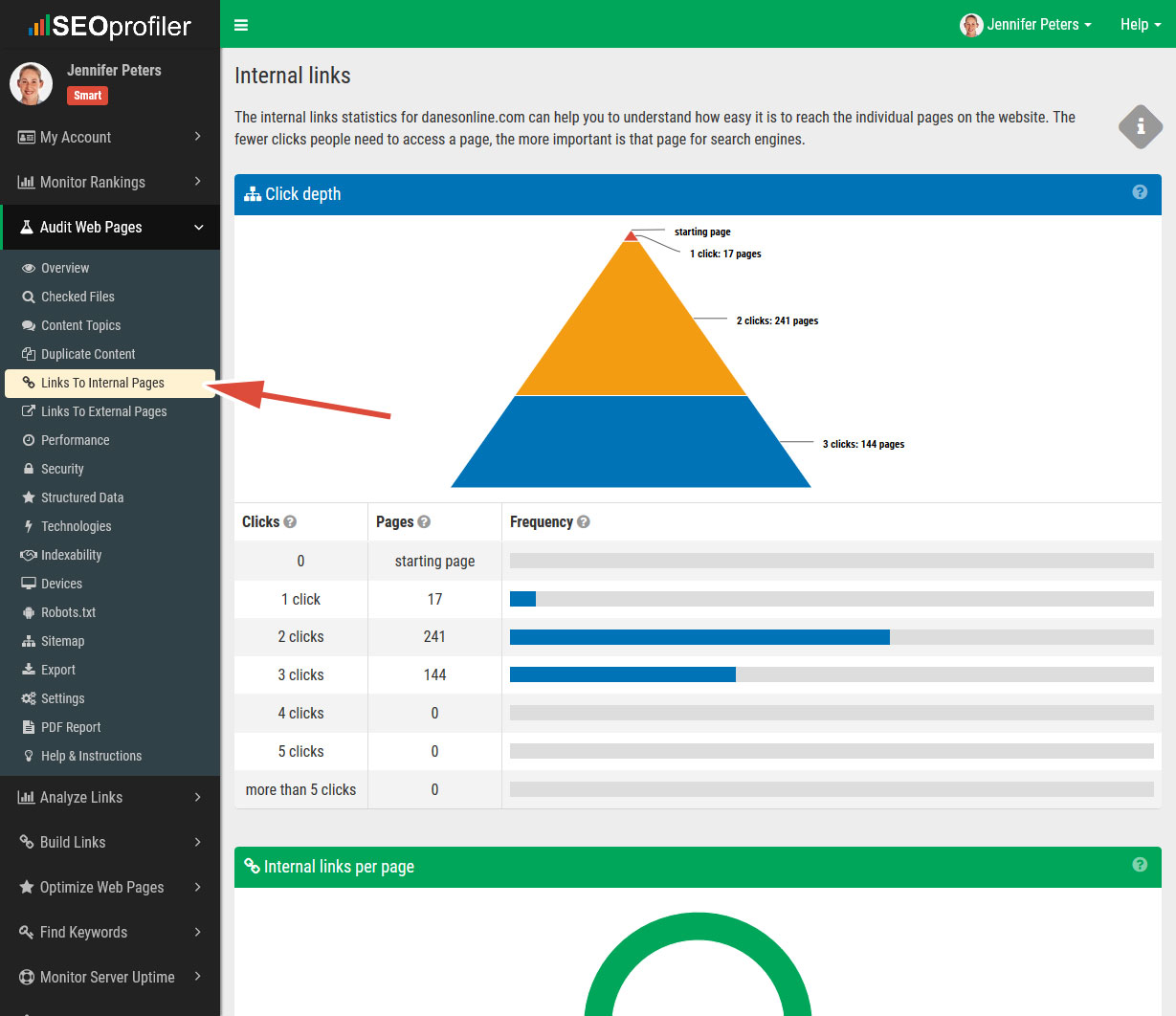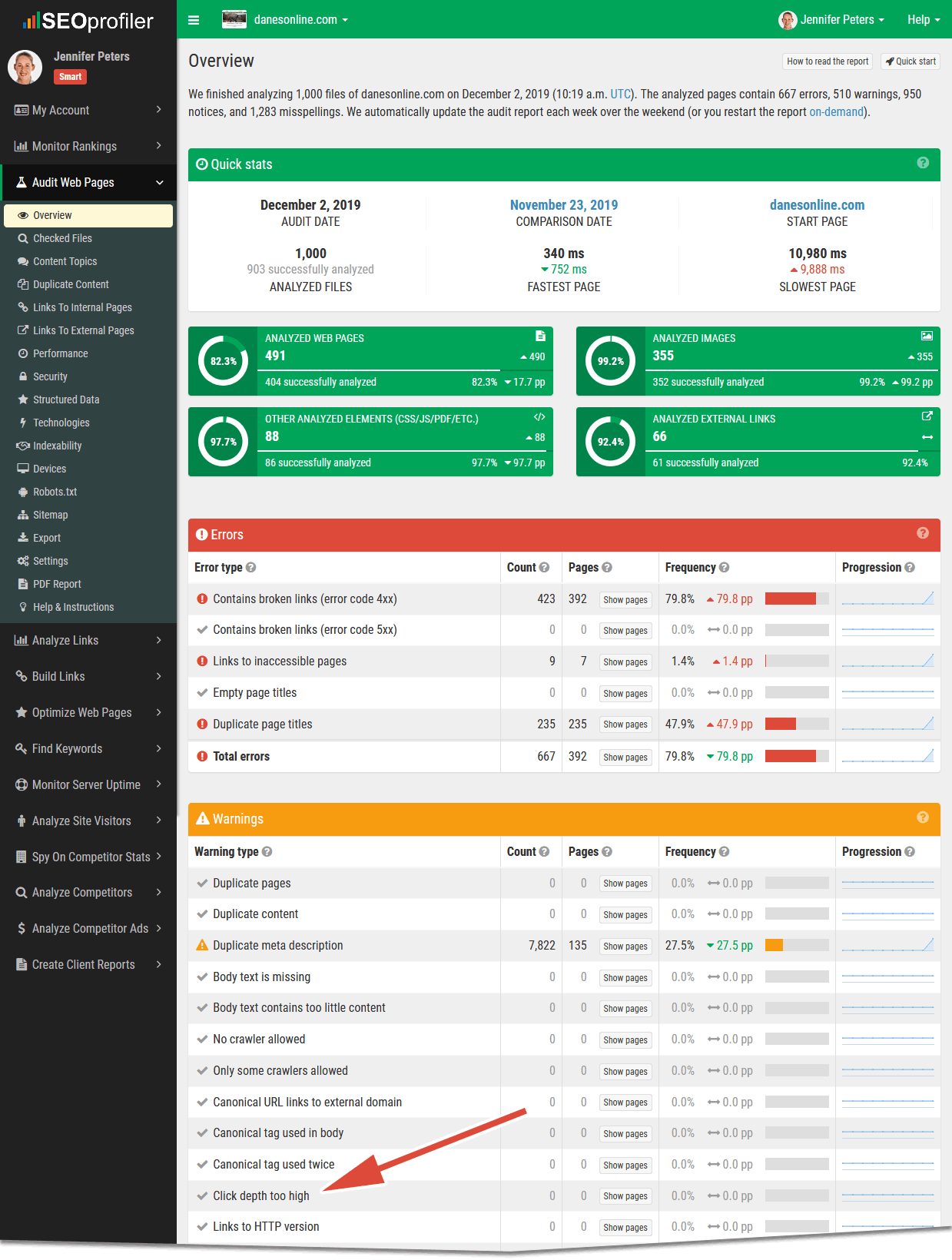Does the click-depth of a page has an impact on the performance of a website in Google’s search results? What can you do to ensure that your web pages aren’t buried too deep on your website?
What is click-depth?
The click-depth of a page is the number of clicks that it takes to get to a page starting from the home page of your website. The home page of your website has a click-depth of 0. Pages that can be accessed by clicking a link on the home page have a click-depth of 1. Pages that are linked from pages that have a click-depth of 1 have a click-depth of 2, etc.
Does the click-depth of a page an impact on its rankings?
Google’s John Mueller said in a webmaster hangout that the number of clicks that are needed shows Google how relevant the pages on your website are:
“From our point of view, we don’t count the slashes in the URL. So if you put it into /stores and then /location and that’s how you want to keep your website on your server, that’s perfectly fine.
What does matter for us a little bit is how easy it is to actually find the content there. So especially, if your home page is generally the strongest page on your website, and from the home page it takes multiple clicks to actually get to one of these stores, then that makes it a lot harder for us to understand that these stores are actually pretty important.
On the other hand, if it’s one click from the home page to one of these stores, then that tells us that these stores are probably pretty relevant and that, probably, we should be giving them a little bit of weight in the search results as well.
So it’s more a matter of how many links you have to click through to actually get to that content rather than what the URL structure itself looks like.”
Although the important pages of your website should be available with one click, you should not overdo it:
“But it’s still something where you have to be careful not to overdo it.
So if you link to all of your pages from the home page, then they’re all on there. So it’s not something where you’d have much value from that.
So you still need some structure, some context around those pages. But if you have a handful of pages that are really important for you, then that will be perfect to link from the home page.”
Google has limited crawl resources. The deeper a page is buried on your website, the less likely Google will crawl it. In addition, the home page of a website is usually the website that has the most links from other websites, i.e. it has the highest PageRank in Google’s algorithm.
Pages that are linked from pages with a high PageRank get better rankings that pages that a linked from pages with low PageRank.
How to check the click-depth of your web pages
The website audit tool in SEOprofiler automatically checks the click depth of all pages on your website. If the click-depth of a web page is too high, you will get a warning:
The page ‘Checked files’ also shows the click-depth of each URL:
The page ‘Links to internal pages’ shows an overview of the click-depth structure on your website in a pyramid chart:
What you should do now
The most important pages on your website should be one click away from the home page of your website. The fewer clicks it takes to get to a pages, the easier it is to get high rankings for that page. Check the click-depth of your web pages now and then optimize your website with the tools in SEOprofiler:




